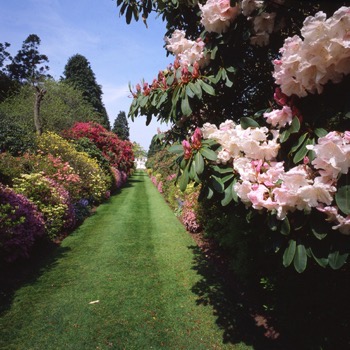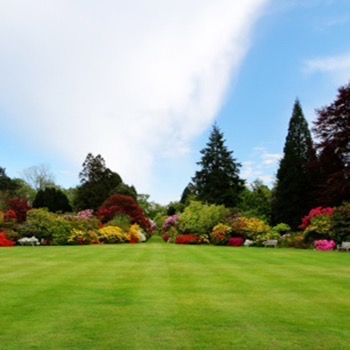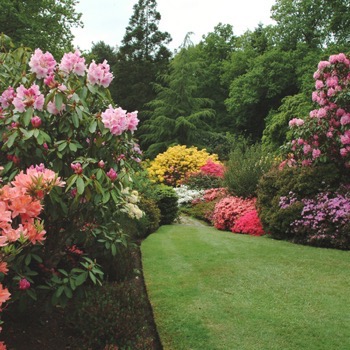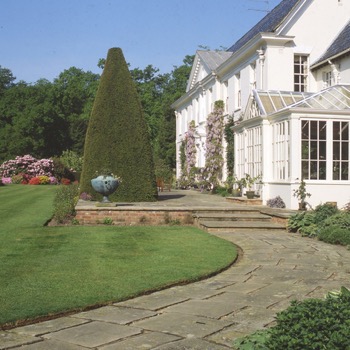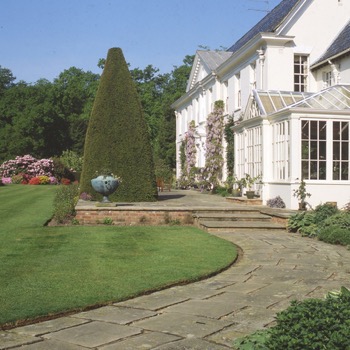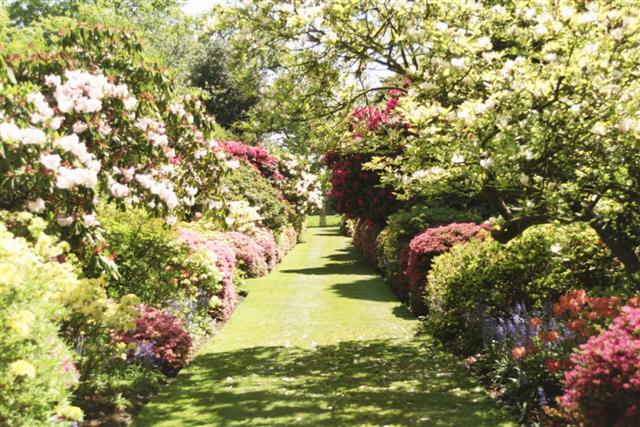Stody Estate And Stody Lodge Gardens
Description
Open to the public 1 – 5pm all Sundays in May & Bank Holiday Monday 25th May
Proud to host The Animal Art Fair Spring Exhibition in May 2015
Even the most admired gardens have their season and the moment when Stody becomes something very much out of the ordinary is in May. Over a five-week period, a riot of colour develops through the garden from the bold pinks and purples of the tall rhododendrons towering over more delicate azaleas, to the paler hues of the bluebells and the lily of the valley below. Flowing throughout and softening this intense palette there is a backdrop of magnificent mature trees, expansive lawns and woodland walks.
Stody Lodge Gardens is renowned for its extensive collection of rhododendrons and azaleas. Keen horticulturists and those looking for a great afternoon out will find much interest and inspiration within the garden.
Find out more about each area of Stody Lodge Gardens at the following link
Opening Times:
Stody Lodge Gardens is open to the public on the following dates:
– Sunday 3rd May 2015 (1pm – 5pm)
– Sunday 10th May 2015 (1pm – 5pm)
– Sunday 17th May 2015 (1pm – 5pm)
– Monday 18th May 2015 – CLOSED
– Tuesday 19th May 2015* (1pm – 5pm)
– Wednesday 20th May 2015 (1pm – 5pm)
– Thursday 21st May 2015 (1pm – 5pm)
– Friday 22nd May 2015 (1pm – 5pm)
– Saturday 23rd May 2015 – CLOSED
– Sunday 24th May 2015 (1pm – 5pm)
– Bank Holiday Monday 25th May 2015 (1pm – 5pm)
– Sunday 31st May 2015 (1pm – 5pm)
*Stody Lodge Gardens will open in aid of the National Garden Scheme 1pm – 5pm on Tuesday 19th May. Non-members also welcome.
Dogs on leads are welcome, there is a free car park, plant stall and delicious homemade teas.
Entrance is £5 (no concessions) and there is no charge for children under 12.
Private group visits are available by appointment Monday to Friday. Please contact 01263 863994.
There is good disabled access to most areas of the gardens.










Stody Estate was originally part of Blickling Estate, the nearby National Trust property owned by the Marquis of Lothian and the birth place of Anne Boleyn. The original Stody Lodge, approached by a long drive flanked with magnificent Cynthia Rhododendron (still much admired by visitors today), was occupied from 1895 to 1926 by Lady Lothian and her husband, Mr Ernest Horsfall.
Mr Horsfall was a keen gardener and, early in the twentieth century, decided to clear and plant the large ‘dark and boggy’ area adjacent to the original lodge. Over the next 25 years the Azalea Water Gardens took shape and today, in this unlikely corner of North Norfolk, we understand it forms the largest single expanse of azalea mollis in the country (more than 2,000 plants over two acres.)


There is also The Hunny Bell – our local 18th Century public house situated on the Estate – The Hunny Bell sits on the green in the picturesque village of Hunworth in the beautiful Glaven valley two miles south of the popular north Norfolk market town of Holt.
Farming
Our farming is largely done in-house by our highly skilled farm team. We grow wheat for the milling and livestock industries, malting and feed barley, oil seed rape used in cooking oils and food processing, sugarbeet for its sugar, maize for both animal forage and bio-fuels, as well as rye, vining peas and dwarf beans.
We also partner with several highly professional and successful vegetable growers, producing ware potatoes for Kettle Chips, salad potatoes, carrots, parsnips and the premium echalion shallots direct to your kitchen table.
farming.jpg
The Estate is home to a premium pig unit, a prize-winning Aberdeen Angus suckler herd and several sheep breeders who supply both local and wider markets.
About us – Stody Estate
Established in 1941, Stody Estate is a family owned business situated close to Holt in North Norfolk. The farm grows a wide range of crops, including potatoes, sugar beet, peas, carrots, parsnips, barley, wheat, winter oilseed and daffodils. There is also some very attractive woodland with wild bluebells, snowdrops and rhododendrons, and the unspoiled chalk river the Glaven runs through the middle of the farm.
Potatoes
The potatoes are grown in partnership with MBMG for many markets; for crisps (including for Kettles in Norwich), chips (it is possible you are eating chips made from our potatoes when you visit MacDonalds), and for all the main supermarkets. The farm produces about 5,000 tonnes per year. Harvest starts in July and ends in October, with potatoes stored right through to June, ensuring a year round supply.
Daffodils
The daffodils are planted in July for 2 years before being harvested, dried, and graded. Two thirds of the bulbs are exported to America and the other third used in the production of drugs for the treatment of alzheimers disease. We grow over 20 varieties that include yellow trumpet, double yellow, multi-headed, and ornamental varieties. In March each year the flowers are picked, and exported to European supermarkets. Annually, we sell about 12 million flower stems.
The sugar beet is planted in March, and is harvested during the winter and delivered to Cantley Sugar Factory, near Norwich. The farm produces 10,000 tonnes of beet – which would make the equivalent of 1½ million bags of sugar!!!
Barley
Barley is grown for the malting market, which is an important ingredient in beer, lager, whiskey, and other products. Malt from barley grown in Norfolk is used by local brewers, and all over the world.
Wheat
Wheat is grown for the milling market to produce flour, and to be made into bread. It is also grown to be fed to cattle, sheep, pigs and poultry.
These crops are grown to produce vegetable oils which are used mainly for cooking, and for specialist lubrication products. The seeds, once the oil has been extracted, are used for animal feed.
Peas
The peas are grown for the frozen market, and many of them are exported to Italy.
These crops are mainly grown on the farm by specialist growers for the supermarket trade.

